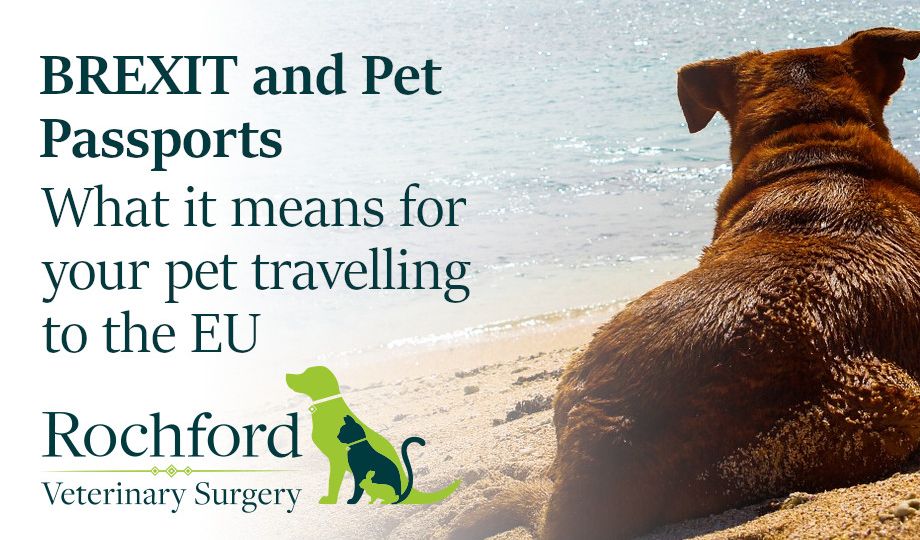
BREXIT and Pet Passports – what it could mean for your pet travelling to the EU.
Many of our clients are wondering what the implications of BREXIT are for their pets travelling to other EU countries. Until a deal is met we will not know the rules and implications however if we leave the EU with a no deal Brexit the following rules for pet travel will apply as we will become an unlisted country.
– You must get your dog, cat or ferret microchipped and then vaccinated against rabies before it can travel in any scenario.
However, to allow effective contingency planning in the worst case scenario of the UK not being granted third country status, you’ll need to take the following steps to make sure your pet can travel after 29 March 2019:
- You must get your dog, cat or ferret microchipped and then vaccinated against rabies before it can travel. Your pet must have a blood sample taken at least 30 days after the rabies vaccination.
- Your vet must send the blood sample to an EU-approved blood testing laboratory.
- The results of the blood test must show that the vaccination was successful (Your pet must have a rabies antibody level of at least 0.5 IU/ml).
- You must wait 3 months from the date the successful blood sample was taken before you travel.
- You must take your pet to a Official Veterinarian (OV), no more than 10 days before travel to get a health certificate.
How often will blood testing be required?
A successful blood test is only required for first time travel to an EU country. This is provided that your pet’s rabies vaccinations are kept up to date with boosters before the expiry date of the previous vaccination.
How long is the pet health certificate valid for?
Your pet health certificate from the Official Veterinarian would be valid for:
- 10 days after the date of issue for entry into the EU
- 4 months of onward travel within the EU
- Re-entry to the UK for 4 months after the date of issue
What happens on arrival into the EU?
On arrival in the EU, pet owners travelling with their pets would be required to enter through a designated Travellers’ Point of Entry (TPE). At the TPE, the pet owner may be asked to present proof of microchip, rabies vaccination and the blood test result alongside their pet’s health certificate.
Repeat trips to the EU
Pets that have previously had a blood test and have an up-to-date rabies vaccination do not need to repeat the blood test. Your pet will need a health certificate for each trip to the EU.
To get a new health certificate you must take your pet to an OV no more than 10 days before you travel. You must take proof of:
- Your pet’s vaccination history
- A successful rabies antibody blood test result
On Returning to the UK:
Your pet must have one of the following documents when returning to the UK:
- An existing EU pet passport (both for UK and EU citizens)
- The EU health certificate issued in the UK used to travel to the EU
- A UK pet health certificate (issued outside the UK for travel into the UK only)
Check the routes before you travel. On existing approved routes your documents and microchip will be checked.
There will be no change to the current requirements for pets entering the UK from the EU after 29 March. If travelling from a country not free from tapeworm (Echinococcus multilocularis), you’ll need to take your dog to a vet between one and five days before returning to the UK for an approved tapeworm treatment.
SIDE NOTE – You do not need to treat your dog for tapeworm if you’re coming directly to the UK from Finland, Ireland, Malta or Norway.
All information printed here is correct as of 11/01/2019 and taken from the official site https://www.gov.uk/guidance/pet-travel-to-europe-after-brexit


